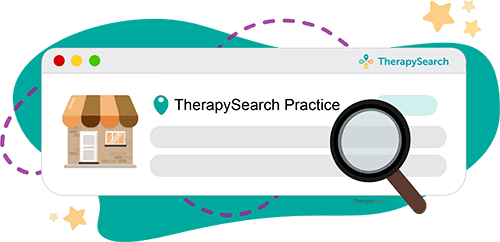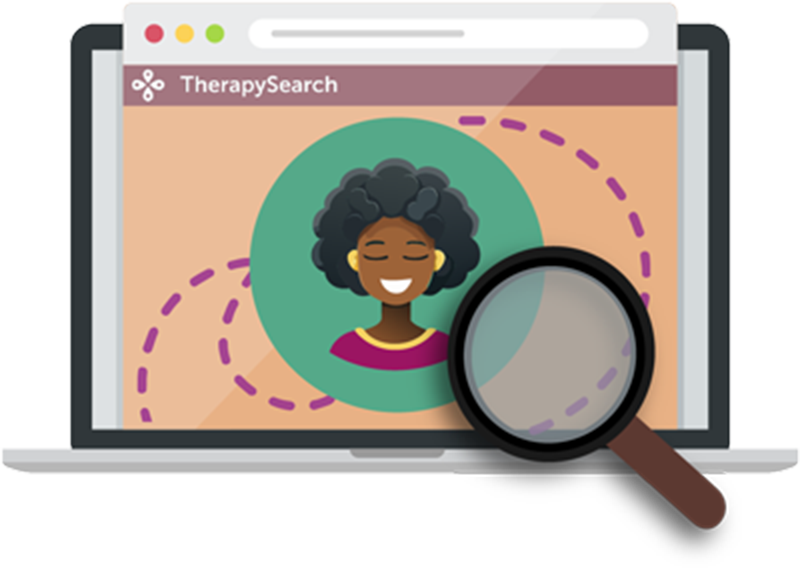5 Simple Steps to Reach Your Ideal Therapy Client (Without Neglecting Other Potential Clients)
By Becky DeGrossa on May 15, 2019

Specialty pages on your website are your opportunity to prove to potential clients why you are the ideal person to help them with their problems. While it’s impossible to appeal to everyone, you'll be able to make an impression on your ideal clients—those people you know you want to work with. That’s the secret to therapist website content that many private practice owners miss; if you try to appeal to everyone, you’ll fail to fully engage those people who are most in need (and who are the closest to giving you a call).
So how can you identify and write for your ideal client without being too narrow and missing out on other potential clients?
1. Define the Unique Issues of Your Ideal clients
Just because you offer anxiety treatment, doesn’t mean you want to work with every person who has anxiety. Some clients are dealing with co-occurring issues that you don’t treat. Others may be completely opposed to medication (or think medication is the only path forward), and sessions could become less productive if this doesn’t align with your approach.
Your specialty page allows you to define your ideal clients and clearly identify any subsets that struggle with unique issues. Some clients may be anxious because of their career, while others are anxious due to relationship problems or childhood trauma. If you can speak to the specific issue causing challenges, clients are more likely to call.
If an issue only affects a small subset of potential clients, you can limit references or use them in a series of examples to speak to your ideal audience without deliberately alienating other potential clients.
2. Know Who’s Reading the Page (It May Not Be the Potential Client)
The person reading your specialty page won’t always be the person who needs therapy. A children’s counseling page needs to speak to the parents. A teen counseling page needs to appeal to both parents and teens (and possibly guidance counselors). An addiction recovery page may need to include sections that speak to codependency or the partner of someone suffering addiction.
Remember that Google and other search engines are also “reading” your page. To help potential clients find your site, your content needs to satisfy search engine algorithms so you show up in search results. Include key search terms to help Google know when to show your page to potential clients. For example, you might include “marriage therapy” on a couples counseling page—not because you only treat married couples but because many couples searching for help type “marriage therapy” into Google, and you want to get a piece of that traffic.
3. Remember Your Clients Aren’t Experts
You are a trained professional, but a vast majority of your clients aren’t. Therefore, many of the terms you would use to explain a specialty and your treatment approach will need to be defined in layman’s terms for your audience.
Similarly, some terms you might avoid are actually worth including in the page because those are the terms your potential clients are using to find help online. Remember, your clients aren’t experts, and they might not have the info or experience needed to search for your services using the terms that you would use.
4. Answer Client Questions
Most therapy clients aren’t ready to reach out for help the first time they visit a therapist’s website. To help guide them closer to the point of calling (without making them feel pressured), take some time on each specialty page to answer common questions about yourself and your approach.
Do clients worry about the time or money therapy will require? Explain why it’s worth the investment. If one partner in a couple doesn’t want to attend therapy, will you work with the other individual? If you offer child counseling, do you have parents attend or do you ask them to wait outside?
Include an About page to answer the questions you couldn’t include on each specialty page. If a client is interested in a specialty you provide, they’ll want to learn more about you. By having an About page (or multiple pages), you can go into greater detail on your background and credentials, your therapy approach and the modalities you use, or provide more information about your practice (what sessions look like, cancellation policy, location details, and whether you accept insurance).
5. Offer Clients a Clear Next Step
Because most clients won’t be ready to call you after seeing a specialty page for the first time, it’s especially important for therapists to give clients a clear next step.
If they are ready to call, make it as easy as possible with an invitation to call or schedule at the bottom of every specialty page. If a client must search for how to contact you, they may give up and look elsewhere.
If they aren’t ready, give them options to stay engaged. Link to related blog posts or offer an email sign-up. If someone leaves your site after viewing just one page, they may not come back again (even when they are finally ready for help).
Additionally, blogging once or twice per month not only boosts SEO and helps your site show up in more online searches, but it’s also a great way to increase internal links and make sure your potential clients always have something else to read. If someone starts on a Depression Treatment page, offer links to articles like “5 Tips to Help Explain Depression to Your Partner.” This will keep people on your site longer, help establish your expertise, and guide potential clients to specialty pages designed to convert.
Don’t Just Get Clients; Get the Right Clients
When you know who your ideal clients are, you can write in a way that helps them find you (and keeps them engaged once they do).
If you need help developing engaging, optimized, targeted content for your website, consider hiring a content development agency, like CounselingWise, that offers personalized attention and proven results.
* The content of this post is intended to serve as general advice and information. It is not to be taken as legal advice and may not account for all rules and regulations in every jurisdiction. For legal advice, please contact an attorney.
About Becky DeGrossa
Get more content like this, delivered right to your inbox. Subscribe to our newsletter.
More Content You'll Enjoy

Converting Clients

What's New: Introducing Practice Profiles in TherapySearch!
